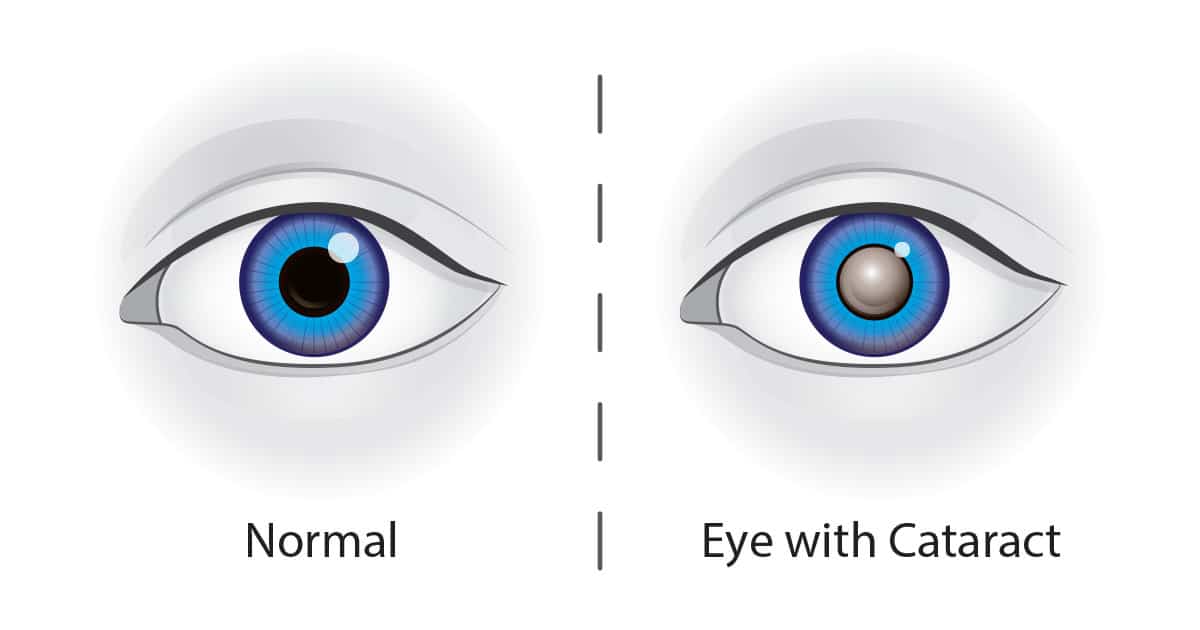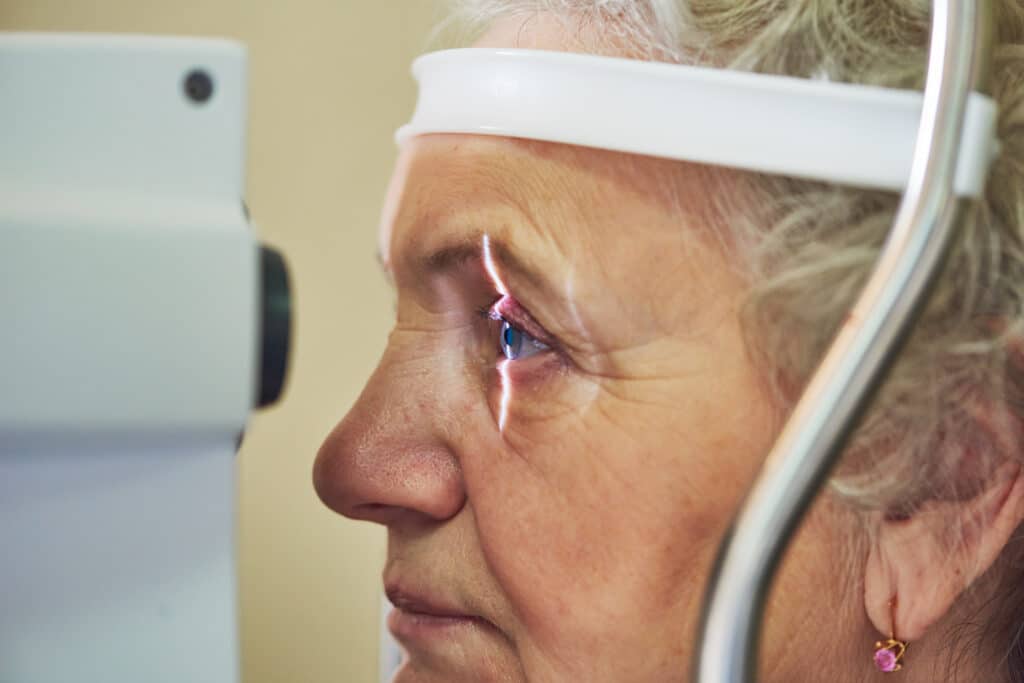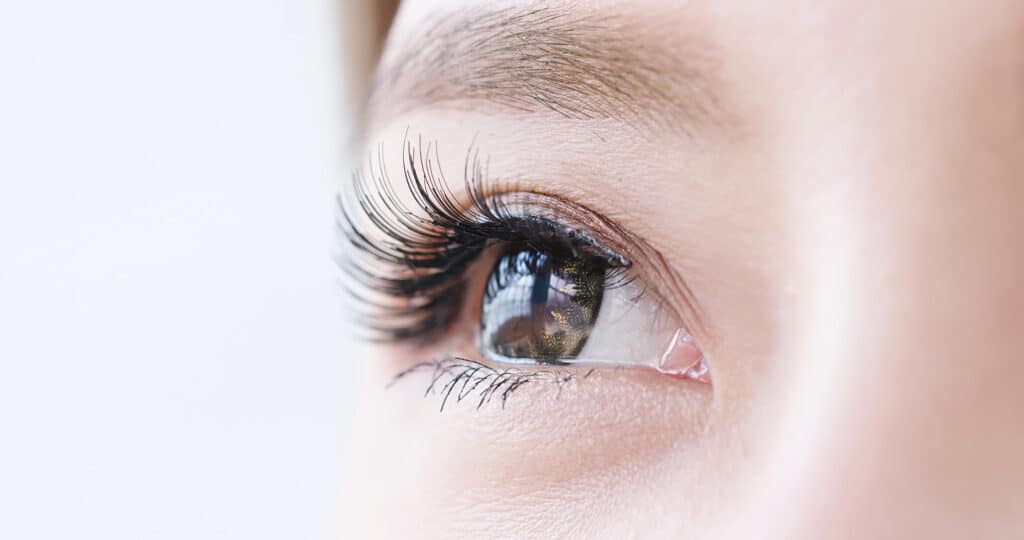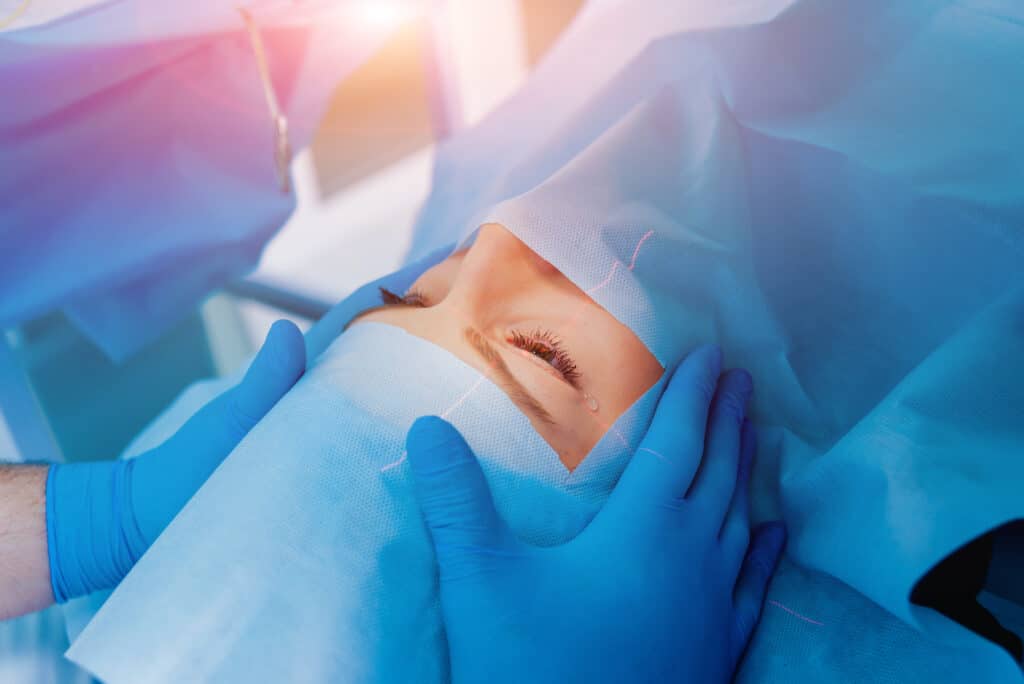What to Know When Considering Cataract Surgery: Your Questions Answered
February 7, 2020
What Are Cataracts and What Causes Them?
A cataract is a clouding of the natural lens of the eye, commonly resulting in blurred vision. This clouding is generated by protein building up in the lens of your eye. Since the lens is responsible for focusing light on the retina, a cataract-affected lens may block light from entering the eye which decreases the quality of your vision and may cause glare.
Cataracts are the most frequent cause of vision loss in people over 40, and half of all Americans develop one by the time they are 80 years old. While cataracts are a normal part of the aging process, they can be expedited by a number of factors, including: exposure to UV light, uncontrolled diabetes, trauma, smoking, obesity, high blood pressure, or a family history of cataracts at a young age.
Fortunately, cataract surgery is a highly common, safe, and reliable solution to treat this condition and will keep your vision sharp for many years to come.
When Should You Get Cataract Surgery?
An initial diagnosis of cataracts does not mean that you must proceed to surgery immediately. However, cataracts will mature and become more significant over time, likely causing more notable impairments with your vision.
When cataracts begin disrupting your daily life, it might be time to start considering surgery more seriously, as it is the only treatment for the condition. Take note of how cataracts are impacting your regular routine. If your vision is preventing you from driving safely, performing your job, reading, using your phone, watching TV, or enjoying outdoor activities, it is likely that surgery should be considered.

What Is Cataract Surgery?
Also known as “Phacoemulsification” and sometimes referred to as refractive lens exchange (RLE), cataract surgery is a procedure that involves replacing a natural lens that is clouded by cataracts with a clear, artificial one.
The surgeon commonly makes two small micro-incisions to gain access to the affected lens. Ultrasound is then used to break-up and liquefy the cataract lens, which is then suctioned out through a micro-incision. After the cataract lens is removed, an artificial lens is inserted into the same spot where the cataract lens was located.
Laser cataract surgery works in much the same way, but makes the procedure even more accurate and predictable for optimal results.
Lens implants are uniquely tailored to your eye(s). Standard or premium lenses are available based on your specific needs, budget, and desire to eliminate the need for glasses after the surgery.
How Long Does Cataract Surgery Take?
The surgery itself is a relatively quick one, typically taking between 10-15 minutes to complete. Prior to the procedure, patients are provided medicine to help relax and will also receive local anesthesia to the affected eye, making the process a painless one.
Immediately following the procedure, you will rest in a recovery room for about 30 minutes to make sure you are okay before someone picks you up to drive you home. All in all, you should expect to be at the surgery center for two to three hours, including pre-operative preparation and post-op instruction.
The Path to Clearer Vision Starts Here
What Are Cataract Surgery Side Effects?
Your vision may be a bit blurry after the surgery, but it should get better within a few days. Temporary side effects from cataract surgery may arise during the healing process. Visually, you may be more sensitive to light, or see a red or pink hue as you heal. Your eye may feel a bit scratchy, itchy, or tear immediately following the surgery, as well. These are all common side-effects that are not cause for alarm and should improve as the eye heals.
Although rare, cataract surgery risk factors and complications can include:
- Posterior capsule opacity
- Dislocated intraocular lens(es)
- Loss of vision
- Ongoing swelling
- Light sensitivity
- Photopsia (perceived flashes of flight)
How Long Does it Take to Recover From Cataract Surgery?
Cataract surgery recovery generally takes patients about a week, and we recommend taking at least a day off of work following the procedure if at all possible. Once your eye has completely healed, surgery could be performed on your other eye if a cataract is present and requiring surgery.
After each procedure, it is important to allow your body to rest, so as to allow your eye to recover and avoid hazards that could be detrimental to the healing process. Within 24 to 48 hours you should be able to do light walking, but rigorous exercise presents multiple risks and should likely be avoided until you are cleared to do so by your doctor. Sweat alone has the potential to irritate your eye after surgery, and can prompt you to touch our rub your eye (which should be avoided during the healing process). When you are able to resume exercising, take things slowly at first, allowing your eye(s) to adapt to your new vision.
How Much Does Cataract Surgery Cost?
Cataract surgery done by hand (without a laser) which utilizes a basic intra-ocular lens is generally covered by insurance. A premium lens providing a greater range of focus and reducing the need for glasses is typically an out-of-pocket expense. However, it should be noted that the surgery expense itself should still be covered by medical insurance. Depending on the premium lens a patient decides on, the cost of cataract surgery can generally range between $3,500 and $5,500 per eye.
Financing is typically available for those wanting to break up the total cost over several monthly installments. This can be a great option for those wanting to upgrade to a premium lens or for those without sufficient medical insurance.
Conclusion
Cataract surgery can revitalize your vision and your quality of life. Millions of patients every year have restored their quality of life by undergoing cataract surgery, helping them live without the restraint of vision problems. Not only is it a safe and highly common procedure, cataract surgery is also the most frequently performed operation in the United States and the technology associated with it continues to improve.
In the Dripping Springs or Austin area? Contact us for a consultation today to see if cataract surgery is the best option for you.


